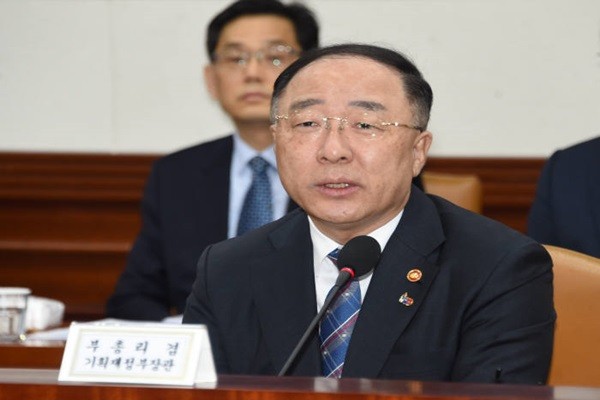Threshold for preliminary feasibility test that decides start of a major protect that requires government budget will be lowered.
Non-metropolitan projects will receive more weight during ‘local balance development’ assessment than in the past and it will be easier for them to pass preliminary feasibility test. ‘Local balance development’ assessment will be excluded for metropolitan projects to resolve any reverse discrimination. Projects with financial resources will be considered as separate candidates resulting in some projects such as GTX (Great Train Express) B line and others to have higher chances of passing preliminary feasibility test.
Korea Institute of Public Finance (KIPF) will be added as a preliminary feasibility testing agency in addition to KDI (Korea Development Institute) and KISTEP (Korea Institute of Science & Technology Evaluation and Planning). Preliminary feasibility test period that used to take 19 months on average will be shortened to less than a year.
South Korean Government decided on its plan to change preliminary feasibility test system during an economic vitality measure meeting that was held at Government Complex-Seoul with Minister Hong Ham-ki of Ministry of Economy and Finance (MOEF) as the presider.
South Korean Government prepared ways to improve preliminary feasibility test system as it believed that there is a need to apply economic and social changes to preliminary feasibility test system as it has been 20 years since it was established.
Main focus of its plan is to separate evaluation criteria for preliminary feasibility test based on metropolitan area and non-metropolitan area.
Preliminary feasibility test is currently based on economic feasibility (weight: 30-50%), policy (weight: 25-40%), and local balance development (weight: 25-35%). Considering the fact that past preliminary feasibility test lacked consideration for backward regions, South Korean Government decided to increase weight of local balance development assessment by 5% while reducing weight of economic feasibility assessment by 5% for projects in non-metropolitan areas.
Projects in metropolitan areas will be based on economic feasibility (60-70%) and policy (30-40%) only. This will resolve any reverse discrimination that caused projects in metropolitan areas to receive unfair assessment during local balance development assessment. Border areas and rural communities within metropolitan areas will be categorized as non-metropolitan areas.

However, non SOC (Social Overhead Capital) projects that are not based on local balance development assessment will maintain same weights of other assessments.
“Rural metropolitan cities such as Daejeon, Daegu, Busan, and Gwangju will receive most benefits through this change followed by non-metropolitan areas and other cities and districts.” said Department Head Lim Young-jin of MOEF’s Feasibility Evaluation Department. “
MOEF believes that this change will not have huge impact on projects within metropolitan areas. However, some metropolitan projects that have already secured significant amount of financial resources are expected to benefit from this change as they are considered as special evaluation items. GTX-B project, which is paid by metropolitan traffic improvement allotments from residents living near train tracks, is a prime example.
South Korean Government is also going to change its comprehensive evaluation governance. In the past, investigative agencies such as KDI had performed comprehensive evaluations and practically decided on whether a project is carried out or not. It is going to establish a financial project evaluation committee under MOEF and set up a subcommittee under financial committee for comprehensive evaluation.
It is also going to increase number of preliminary feasibility testing agencies. Previously, KDI and KISTEP were responsible for non R&D projects and R&D projects respectively. It is going to designate KIPF as an additional agency that will be responsible for non R&D projects.
Preliminary feasibility test that used to take 19 months on average (based on 2018) will now take less than a year. South Korean Government is going to actively allow withdrawal and restoration whenever re-planning of a project is needed due to changes in conditions and ease requirements for requesting preliminary feasibility test again. It is going to strengthen procedures for preliminary preparation of competent departments to reduce time it takes to request and submit materials.
“We are going to quickly revise relevant guidelines based on revised plans and apply regulations that can be applied right away to projects that are currently under evaluation.” said Minister Hong.
Staff Reporter Yoo, Seonil | ysi@etnews.com